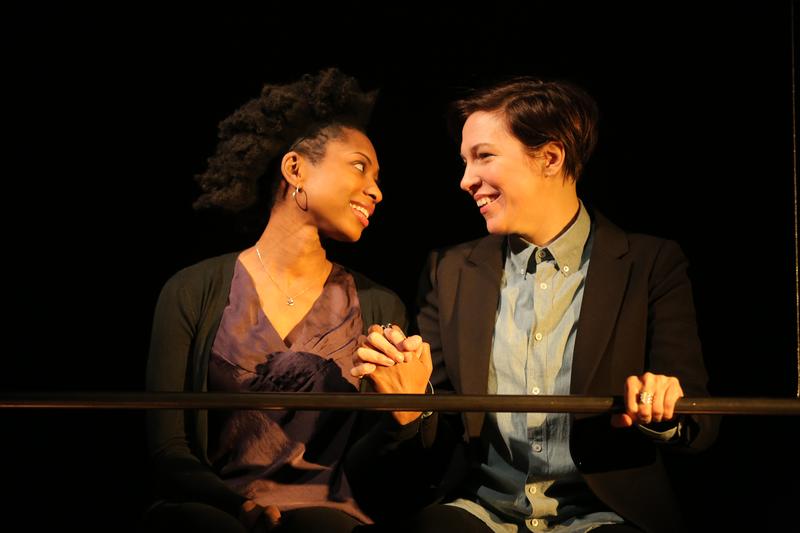
There aren't many portrayals of lesbians on stage — and even fewer plays devoted to lesbian couples.
That makes Tanya Barfield's "Bright Half Life" important. It traces Vicky (Rachael Holmes) and Erica (Rebecca Henderson) from 1986-2013 as they meet, fall in love, raise a family, fight. What Pulitzer-prize nominated Barfield gets so right is the mix of politics and emotional processing that is the keystone of many lesbian relationships, especially the ones formed in the late '80s and early '90s, when very little about being gay was legal.
Yet the narrative is hijacked by the form it takes. Barfield has shattered the story into layered fragments told out of order; we move from a proposal of marriage to a street scene years earlier when one of the women got sick — no blackout, no pause. Eventually, scene switches happen even faster, some mid-sentence, in the amount of time it takes one of the women to cross the stage.
This is clever, especially when the adept Holmes switches emotional tones mid-stride, and it can feel like a magic trick. But the story lacks depth and insight — at times it feels almost like a Facebook stream of a relationship. Barfield stuffs the story with a relationship's most dramatic moments, which in this case means mostly arguments. We see a lot of fighting, but not many of the quiet moments of support and understanding and respect and love that knit a couple together. Most disappointingly, it's not clear what Vicky and Erica ever saw in each other or whether we should root for them to work it out.
But that doesn't mean it isn't entertaining. The show is a quick 60 minutes and is saved by fine acting, Leigh Silverman's crisp direction and the precise sound design of Bart Fasbender. Plus there's the lighting design of Jennifer Schriever, whose artistry helps us keep our place as we rocket from year to year. Together, they take an almost empty stage and root us in an ever-shifting story of a couple who just can't live together, no matter how in love they may be.
